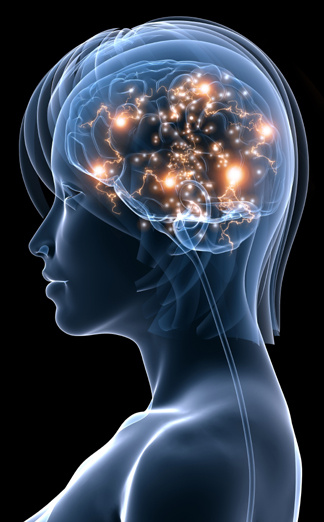News
February 2, 2015
By Nuritas
Regulating Pain by Changing What Pain Means to Us

By: Meaghan Lee-Erlandsen and Dr. Nora Khaldi on 02 February 2015
Studies in Europe, North America, Australasia and other areas of the world have found that one in five adults suffer from chronic moderate to severe pain[1]. Not surprisingly, pain has many effects not only physically but also emotionally, causing many sufferers severe frustration and depression.
has many effects not only physically but also emotionally, causing many sufferers severe frustration and depression.
With such a large population suffering from chronic pain, it is important to understand how pain is regulated in the brain so as to develop ways of addressing and treating this growing issue and its many effects on the body and mind.
In a recent ground-breaking study, Professor Tor Wager and co-authors, found that pain is not just processed via the brain’s sensory and emotion system but, also, and very importantly, the area of the brain associated with the processing of value and meaning has been found to play a key role in the regulation and control of pain.
Choong-Wan Woo, the first author of the study, was kind enough to provide a brief summary of this incredible research that explains, for the first time ever, how the brain generates and regulates pain through multiple systems:
to provide a brief summary of this incredible research that explains, for the first time ever, how the brain generates and regulates pain through multiple systems:
![]() We can effectively regulate pain experience by changing its meaning for us, but how it works in the brain has been unclear before our study. We found that self-regulation of pain influences pain through the brain’s value and meaning-making systems, rather than the basic sensory pain system in the brain. Our finding supports the idea that pain can be generated and regulated through multiple, distributed brain systems, not “one” pain system, and therefore provides a step towards a better assessment of different types of pain that people may experience.
We can effectively regulate pain experience by changing its meaning for us, but how it works in the brain has been unclear before our study. We found that self-regulation of pain influences pain through the brain’s value and meaning-making systems, rather than the basic sensory pain system in the brain. Our finding supports the idea that pain can be generated and regulated through multiple, distributed brain systems, not “one” pain system, and therefore provides a step towards a better assessment of different types of pain that people may experience. ![]()
This is an incredible breakthrough in that it provides further understanding of the overall processes and pathways in the brain as well as how the regulation of such pathways may help in the treatment of chronic issues such as pain.
We at Nuritas™ are very excited for this new discovery as we understand the serious issues regarding chronic pain and its many effects. Understanding how pain is processed within the brain will help ensure that new ways of treating pain are explored and developed for millions of people.
For further information regarding this study please click here.
References
[1] http://www.efic.org/userfiles/Pain%20Global%20Healthcare%20Problem.pdf





 Previous
Previous
